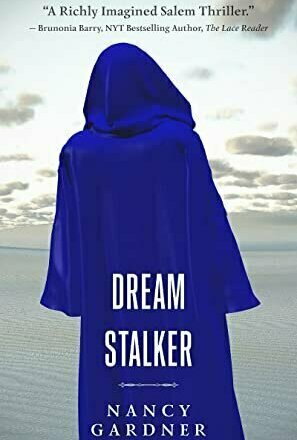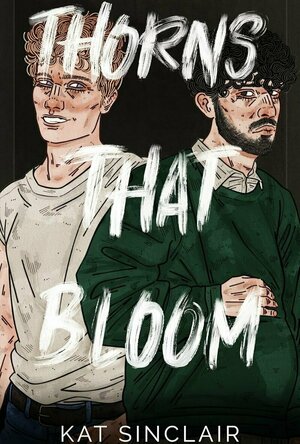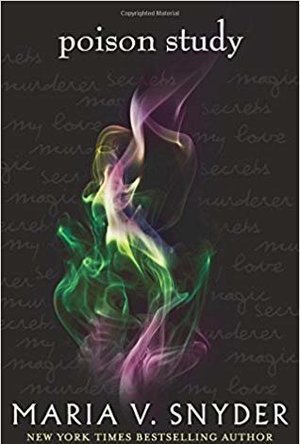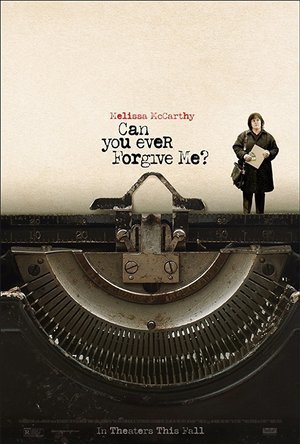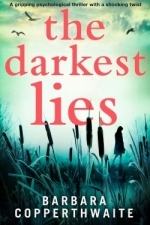Search
Search results
ClareR (6062 KP) rated The Sanatorium in Books
Feb 14, 2021
The Sanatorium is a chilling, atmospheric thriller, set in the Swiss Alps. Elin has been invited to her brothers engagement party in a 5* mountain retreat - a hotel in a converted sanatorium. Understandably (I think), I was creeped out by this whole scenario, and the opening chapter didn’t do much to put me at my ease - but it’s OK, I like being scared witless by a book! Frankly, if a book sells itself as being unnerving or potentially scary, and you can still go up to bed with the landing light off, then it won’t have fulfilled the brief. I sent my husband upstairs first to switch the lights on whilst I was reading this...
Elin is a troubled character, and clearly needs some help with past trauma. This makes her a nervy person who doesn’t have any self-confidence. She shuts her boyfriend out - and can I just say here that he seemed to be an incredibly patient person? I liked his character a lot. Most of the other characters are pretty unpleasant people if I’m honest, and I think any of them could have been the murderer. Some of the people reading along with me on the Pigeonhole worked out who the murderer was, but as usual, I merrily read on without a clue (this is OK by me - I’m in it for the ride and don’t feel the need to try and work it out).
I can’t quite believe that this is a debut, and I really enjoyed it. I would most definitely recommend it!
Many thanks to the Pigeonhole for serialising this. It was a great experience, as always, made all the better by sharing my thoughts with my fellow Pigeonholers! Oh, and thanks again for helping me read another book off my NetGalley list!
Elin is a troubled character, and clearly needs some help with past trauma. This makes her a nervy person who doesn’t have any self-confidence. She shuts her boyfriend out - and can I just say here that he seemed to be an incredibly patient person? I liked his character a lot. Most of the other characters are pretty unpleasant people if I’m honest, and I think any of them could have been the murderer. Some of the people reading along with me on the Pigeonhole worked out who the murderer was, but as usual, I merrily read on without a clue (this is OK by me - I’m in it for the ride and don’t feel the need to try and work it out).
I can’t quite believe that this is a debut, and I really enjoyed it. I would most definitely recommend it!
Many thanks to the Pigeonhole for serialising this. It was a great experience, as always, made all the better by sharing my thoughts with my fellow Pigeonholers! Oh, and thanks again for helping me read another book off my NetGalley list!

Cell Phone GPS Tracker (PhoneOnMap)
Navigation and Sports
App
The application enables you to locate and record iPhone location and has the ability to share this...
Merissa (13749 KP) rated Dream Stalker in Books
Nov 15, 2021 (Updated Jul 10, 2023)
DREAM STALKER is told from a first-person perspective and we arrive in Salem near Samhain, also known as Halloween. It is a sad time as Lily's friend, Kitty commits suicide in front of her, but not before passing her a box and telling her to find the truth. This leads to a tangled mess of truths and half-truths, with deaths and accusations flying around.
Lily is a Wiccan and her sister was a Catholic nun. There is some sort of family drama with an adopted daughter and a sister. You get the basics but nothing too deep, so there was a feeling of wanting more. You are led from one person to the next, as our heroine is determined to prove her daughter's innocence. The big bad was a bit too obvious for me, but I still enjoyed reading about how it got to the point that Lily knew.
There are many interesting aspects to this story, especially the Wiccan and Herbalist sides of it. I would have preferred more information on the backstories of some of the characters, plus more about why something happened or connections were made or denied.
At the end of the story, it becomes clear there will be a follow-up to this story. I am looking forward to this as I hope it will give me more details about Lily, her family, and her dream walking ability.
** same worded review will appear elsewhere **
* A copy of this book was provided to me with no requirements for a review. I voluntarily read this book, and the comments here are my honest opinion. *
Merissa
Archaeolibrarian - I Dig Good Books!
Nov 15, 2021
Lily is a Wiccan and her sister was a Catholic nun. There is some sort of family drama with an adopted daughter and a sister. You get the basics but nothing too deep, so there was a feeling of wanting more. You are led from one person to the next, as our heroine is determined to prove her daughter's innocence. The big bad was a bit too obvious for me, but I still enjoyed reading about how it got to the point that Lily knew.
There are many interesting aspects to this story, especially the Wiccan and Herbalist sides of it. I would have preferred more information on the backstories of some of the characters, plus more about why something happened or connections were made or denied.
At the end of the story, it becomes clear there will be a follow-up to this story. I am looking forward to this as I hope it will give me more details about Lily, her family, and her dream walking ability.
** same worded review will appear elsewhere **
* A copy of this book was provided to me with no requirements for a review. I voluntarily read this book, and the comments here are my honest opinion. *
Merissa
Archaeolibrarian - I Dig Good Books!
Nov 15, 2021
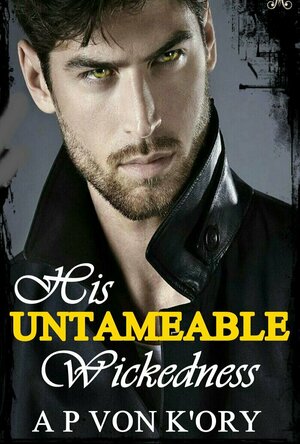
His Untameable Wickedness (Untameable #1)
Book
“You love to hurt, I love to hurt. A perfect f*cking match we make.” ~ Adrian LEO A...
Dark Erotica Romantic Suspense
Debbiereadsbook (1650 KP) rated Matching with Monsters (The Red Agency #1) in Books
Dec 26, 2023
so close to 5 stars but I needed the guys too!
Independent reviewer for BookSirens, I was gifted my copy of this book.
One thing, and one thing alone stopped this book getting 5 stars. Well, maybe 2, but the second thing is just me being greedy, but I'm allowed, right??
So that thing? Single person point of view. Only Ari has a say, in the first person. Now, I always want to hear from everyone, but I think HERE, in this case, I am fully justified in wanting to hear from Magnus, the vampire; Gareth, the yeti; Gabe and Lucien, the gargoyles and Rivak, but I'm not telling you what he is, it takes time for the full reveal and you do need that suspense! But it was Rivak that I needed to hear from the most. When he tells of why he holds himself back, you understand but I needed to hear from HIM, you know?
There are other points that I need to make, but I don't think these affect my star rating. The rival clan thing was never fully explained. And I would have loved more about that way this clan of 5 came to be, their history.
It's clear that Ari's two friends, Cami and Lyssa, have a story with their own clan. I hope I get to read them!
So, the other thing that's just me being greedy?? It's very much Ari and HER mates. I would have loved that they were ALL mates, you know?? Obviously, not Gabe and Lucien, since they are twins, but I would have loved some contact between the monsters as well as Ari, you know?? Greedy, like I said!
4 very good stars
*same worded review will appear elsewhere
One thing, and one thing alone stopped this book getting 5 stars. Well, maybe 2, but the second thing is just me being greedy, but I'm allowed, right??
So that thing? Single person point of view. Only Ari has a say, in the first person. Now, I always want to hear from everyone, but I think HERE, in this case, I am fully justified in wanting to hear from Magnus, the vampire; Gareth, the yeti; Gabe and Lucien, the gargoyles and Rivak, but I'm not telling you what he is, it takes time for the full reveal and you do need that suspense! But it was Rivak that I needed to hear from the most. When he tells of why he holds himself back, you understand but I needed to hear from HIM, you know?
There are other points that I need to make, but I don't think these affect my star rating. The rival clan thing was never fully explained. And I would have loved more about that way this clan of 5 came to be, their history.
It's clear that Ari's two friends, Cami and Lyssa, have a story with their own clan. I hope I get to read them!
So, the other thing that's just me being greedy?? It's very much Ari and HER mates. I would have loved that they were ALL mates, you know?? Obviously, not Gabe and Lucien, since they are twins, but I would have loved some contact between the monsters as well as Ari, you know?? Greedy, like I said!
4 very good stars
*same worded review will appear elsewhere
Debbiereadsbook (1650 KP) rated Thorns The Bloom (Venusverse #3) in Books
Oct 8, 2025
far darker than 1, but so good!
Independent reviewer for BookSirens, I was gifted my copy of this book.
This is book 3 in the Venusverse series. I have not read book 2, but these can be read as stand alone books. There is a bit at the beginning that explains this world better.
Sam, an omega, moves clear across the country to get away after an attack by 5 alphas leaves him pregnant and alone. He doesn't want anything to do with alphas, ever again. But meeting Theo throws him off.
What I especially loved about this book, was the slow burn between Sam and Theo. Once Theo knows what happened to Sam, he really does just set out to be his friend, but his alpha-ness draws him closer to Sam every day. But Theo lets Sam set the pace of their friendship, and that endears him to Sam all the more.
I loved that Theo goes all out to be Sam's friend. Bringing him lunch, reading up on his condition. And when Sam's new life is threatened, Theo puts all his past behind him and approaches the one person he never thought he would speak to again.
Sam's attack isn't on page, but the aftermath is. How Sam reacts in certain situations and the trauma that comes from that. It really is needed to make Sam's point, I think.
First person, present tense and multi point of view but I didn't notice it again til I was filing the book! These book grab me and do not let go.
This is far darker than book 1 but still a. . .
5 star read
*same worded review will appear elsewhere
This is book 3 in the Venusverse series. I have not read book 2, but these can be read as stand alone books. There is a bit at the beginning that explains this world better.
Sam, an omega, moves clear across the country to get away after an attack by 5 alphas leaves him pregnant and alone. He doesn't want anything to do with alphas, ever again. But meeting Theo throws him off.
What I especially loved about this book, was the slow burn between Sam and Theo. Once Theo knows what happened to Sam, he really does just set out to be his friend, but his alpha-ness draws him closer to Sam every day. But Theo lets Sam set the pace of their friendship, and that endears him to Sam all the more.
I loved that Theo goes all out to be Sam's friend. Bringing him lunch, reading up on his condition. And when Sam's new life is threatened, Theo puts all his past behind him and approaches the one person he never thought he would speak to again.
Sam's attack isn't on page, but the aftermath is. How Sam reacts in certain situations and the trauma that comes from that. It really is needed to make Sam's point, I think.
First person, present tense and multi point of view but I didn't notice it again til I was filing the book! These book grab me and do not let go.
This is far darker than book 1 but still a. . .
5 star read
*same worded review will appear elsewhere
Mandy and G.D. Burkhead (26 KP) rated Poison Study (Study, #1) in Books
May 20, 2018
Shelf Life – The Chronicles of Ixia merits closer study
Contains spoilers, click to show
This review is for the entire Chronicles of Ixia series.
The first trilogy, comprised of Poison Study, Fire Study, and Magic Study, follows Yelena Zaltana. The second series, also called the Glass series, follows her friend Opal Cowan in Storm Glass, Sea Glass, and Spy Glass. The final trilogy, Shadow Study, Night Study, and Dawn Study, is where things get a bit odd. Maria V. Snyder had thrown in a few short stories/novellas throughout from different characters’ points of view. Perhaps she got bored of just sticking to one POV, or maybe fans wanted more from the other characters, so the third trilogy is from Yelena’s POV in first person and the POV’s of multiple characters (mainly Valek, Leif, and Janco, with a few others popping in from time to time) in third person.
I’m not sure which editor thought it would be a good idea to have POV switch from first person to third person in the same novel, but—yikes—is it jarring. Even with the wonky POV stuff in the third trilogy, these books are amazing and absolutely worth your time to read. Snyder’s world-building is compelling, detailed, and original. The books take place mostly between two pre-industrial countries: Ixia and Sitia. Ixia is a post-revolution country ruled by Commander Ambrose. His personal body guard and assassin is Valek. In the first novel Yelena is in prison for murder and is offered the choice to be the Commander’s food taster in exchange for her life. She agrees, and throughout the first book she and Valek begin to fall in love.
Ixia reminded me a lot of Communist Russia or China. In its attempts to throw away the corrupt government and society that came before, it has also thrown out all culture in the process. The country has been re-divided into districts with numbers instead of names, everyone is forced to wear a uniform, all art and extravagance has been destroyed, people have to have passes to travel between districts, and magic is forbidden. Anyone born with it is killed (or so the reader is led to believe). But Maria V. Snyder does a wonderful job of showing the good with the bad in this totalitarian dictatorship. Everyone has a job and nobody goes hungry, women are now equal to men, and violence and sexual assault are intolerable. This is why Yelena ends up in prison in the first place: she murdered the man that raped her. Now, this is probably my first major gripe with the series. We learn that Commander Ambrose loathes sexual assault and will execute anyone found guilty of it, but apparently killing a rapist in self-defense is also an executable offense. And all of that being said, Ambrose still has his own personal assassin. It all feels a bit contradictory, but again, that’s what I like about this series: it does an excellent job of peeling back the layers of her fictional societies and pointing out that governments and people in power tend to be hypocritical.
Now, the series name (or rather one of them) is Chronicles of Ixia, but honestly, it should have been called Chronicles of Sitia, because that is where most of the story takes place and is by far the more interesting and vibrant country. Sitia is part jungle, part desert, and full of magic. The peoples are divided into multiple clans or tribes that are all unique and compelling. In the second book, Yelena flees to Sitia after the Commander learns she has magic, and there she finds the family she was kidnapped from as a small child. They are part of the Zaltana clan, a group of people that live high in the trees in the jungle. Whenever I read about them, I would have to remind myself that they were not wood elves or dryads, because while there is magic in these books, there are no fantastical creatures: all characters are human or animal.
Another fascinating tribe is the Sandseeds, a group of nomads in the desert known for two major things: breeding super smart horses and having Storyweavers. The Storyweavers are people who have the magical ability to see the future and guide others, but who have to do it really cryptically because reasons (I appreciate that this gets pointed out by an annoyed Yelena multiple times). And of course, the Sandseed horses are fantastic; they choose their rider and able to mentally communicate with magical people. They even have their own horse names for people that they like.
Besides the different clans throughout Sitia, there is also the capitol, the Citadel, which is home to the magic school and the Sitian Council. While very different from Ixia, Sitia is by no means perfect. Its Council epitomizes everything annoying and dysfunctional about a bureaucracy. While the council members are elected and come from every clan in Sitia, they are at best useless and at worst actively impede the main characters.
The magic school is interesting, though the story doesn’t actually spend much time there. I like how magic was done in this series: it usually runs in families, most people with it have control over one or two things (ie. fire, mind-control, telepathy, etc.), but those who have the ability to master more can become Master Magicians after enduring a daunting trial. Magic is bound in people’s blood, so blood magic is a thing and is obviously bad, and magic (and a person’s soul) can be stolen using an intricate and gruesome blood ritual that involves prolonged torture, rape, and then murder.
The power blanket is another interesting concept used in this series. Essentially is resides over the entire world and is the essence of magic, so magicians can pull from it to augment their own magic. However, if they pull too much and lose control, they can flame out, killing themselves and temporarily damaging the blanket in the process. I thought this was a good literary tool to prevent magical characters from being too OP (at least most of the time).
I especially like the romantic relationships in this series. Valek and Yelena are of course the main couple. In the first book they fall in love, in the second book they get separated, and throughout the series they regularly cross paths and save one another. Yelena and Valek are heartmates, and as the series progresses they both have to mature and learn how to trust one another. My biggest complaint about the romance is that all sex scenes are just fade to black, which I personally find a bit boring.
The other major romantic relationship is between Opal and Devlen. This one was a bit awkward. Opal actually goes through a couple of guys first: a stormdancer named Kade and another glassmaker named Ulrick. And I really liked that the author included this. Many people have multiple partners before finding their soulmate, and a woman who does is not a slut. Her relationship with Devlen, however . . . Well, she’s a more forgiving person than me.
You see, it turns out that Devlen is the man who kidnapped Opal a few years earlier and tortured her because he was trying to steal her magic. But he didn’t actually enjoy torturing her and never raped her, which I guess makes it better? Well, he manages to switch bodies with Ulrick and, as Ulrick, tricks Opal into dating him, then, when he’s discovered, kidnaps and tortures her (again) to gain more power. But then she steals his magic, he spends some time in prison, and the combination of the two miraculously turn him into a good guy, claiming that magic is what made him evil in the first place.
I’m going to be honest, I didn’t completely buy his redemption arc even at the end of the third book in the Glass series, but by the ninth book they’re still together and he’s on the good guys’ side, so I guess it was real. And I have definitely watched/read much worse evil asshole to boyfriend stories. At least Devlen genuinely feels guilty for the horrible things he did in the past and attempts to make up for them, and in her defense, Opal has to do a lot of soul-searching before she can find it in her to forgive and trust him, and even more before she can develop romantic feelings for him (that aren’t based on deception, anyway). Also, Ulrick becomes a huge jerk because of his newfound magical abilities, tries to kill Opal, and later gets assassinated by Valek. I appreciate what Maria V. Snyder is trying to do here, which is to teach through her storytelling how good people can become evil, and evil people can redeem themselves and be good. Their romance was uncomfortable to read, but it was supposed to be uncomfortable, because that’s how all parties involved felt.
Now, let’s talk about Commander Ambrose. Towards the end of the first book, Yelena discovers that Ambrose is a female to male trans person. This is revealed to be why Ambrose hates magicians so much: he is afraid that one of them will read his mind and then reveal his secret (which is how Yelena discovers it). After I read the first book, I was really pleased that Snyder did such a good job of depicting a trans person, as that’s really only a small part of his character, and those who know (mainly Valek and Yelena) don’t make a big deal out of it.
And then . . . I really wish that the author would have just left the issue of the Commander being trans alone. Yelena discovers it in the first book, she keeps it to herself because it’s nobody else’s business, the end. But by creating this weird intricate background to explain why Ambrose is trans, Snyder just kind of shoots herself in the foot.
Throughout the rest of the series, I kept hoping for some other LGBTQ+ characters to show up to redeem the blunder with Ambrose. I actually believed that Ari and Janco were a gay couple for the longest time, what with their banter and often being referred to as partners. However, if this was the author’s intention, it was never really explicitly stated, and the partner thing just seems to refer to them being partners in combat and nothing else.
The first trilogy, comprised of Poison Study, Fire Study, and Magic Study, follows Yelena Zaltana. The second series, also called the Glass series, follows her friend Opal Cowan in Storm Glass, Sea Glass, and Spy Glass. The final trilogy, Shadow Study, Night Study, and Dawn Study, is where things get a bit odd. Maria V. Snyder had thrown in a few short stories/novellas throughout from different characters’ points of view. Perhaps she got bored of just sticking to one POV, or maybe fans wanted more from the other characters, so the third trilogy is from Yelena’s POV in first person and the POV’s of multiple characters (mainly Valek, Leif, and Janco, with a few others popping in from time to time) in third person.
I’m not sure which editor thought it would be a good idea to have POV switch from first person to third person in the same novel, but—yikes—is it jarring. Even with the wonky POV stuff in the third trilogy, these books are amazing and absolutely worth your time to read. Snyder’s world-building is compelling, detailed, and original. The books take place mostly between two pre-industrial countries: Ixia and Sitia. Ixia is a post-revolution country ruled by Commander Ambrose. His personal body guard and assassin is Valek. In the first novel Yelena is in prison for murder and is offered the choice to be the Commander’s food taster in exchange for her life. She agrees, and throughout the first book she and Valek begin to fall in love.
Ixia reminded me a lot of Communist Russia or China. In its attempts to throw away the corrupt government and society that came before, it has also thrown out all culture in the process. The country has been re-divided into districts with numbers instead of names, everyone is forced to wear a uniform, all art and extravagance has been destroyed, people have to have passes to travel between districts, and magic is forbidden. Anyone born with it is killed (or so the reader is led to believe). But Maria V. Snyder does a wonderful job of showing the good with the bad in this totalitarian dictatorship. Everyone has a job and nobody goes hungry, women are now equal to men, and violence and sexual assault are intolerable. This is why Yelena ends up in prison in the first place: she murdered the man that raped her. Now, this is probably my first major gripe with the series. We learn that Commander Ambrose loathes sexual assault and will execute anyone found guilty of it, but apparently killing a rapist in self-defense is also an executable offense. And all of that being said, Ambrose still has his own personal assassin. It all feels a bit contradictory, but again, that’s what I like about this series: it does an excellent job of peeling back the layers of her fictional societies and pointing out that governments and people in power tend to be hypocritical.
Now, the series name (or rather one of them) is Chronicles of Ixia, but honestly, it should have been called Chronicles of Sitia, because that is where most of the story takes place and is by far the more interesting and vibrant country. Sitia is part jungle, part desert, and full of magic. The peoples are divided into multiple clans or tribes that are all unique and compelling. In the second book, Yelena flees to Sitia after the Commander learns she has magic, and there she finds the family she was kidnapped from as a small child. They are part of the Zaltana clan, a group of people that live high in the trees in the jungle. Whenever I read about them, I would have to remind myself that they were not wood elves or dryads, because while there is magic in these books, there are no fantastical creatures: all characters are human or animal.
Another fascinating tribe is the Sandseeds, a group of nomads in the desert known for two major things: breeding super smart horses and having Storyweavers. The Storyweavers are people who have the magical ability to see the future and guide others, but who have to do it really cryptically because reasons (I appreciate that this gets pointed out by an annoyed Yelena multiple times). And of course, the Sandseed horses are fantastic; they choose their rider and able to mentally communicate with magical people. They even have their own horse names for people that they like.
Besides the different clans throughout Sitia, there is also the capitol, the Citadel, which is home to the magic school and the Sitian Council. While very different from Ixia, Sitia is by no means perfect. Its Council epitomizes everything annoying and dysfunctional about a bureaucracy. While the council members are elected and come from every clan in Sitia, they are at best useless and at worst actively impede the main characters.
The magic school is interesting, though the story doesn’t actually spend much time there. I like how magic was done in this series: it usually runs in families, most people with it have control over one or two things (ie. fire, mind-control, telepathy, etc.), but those who have the ability to master more can become Master Magicians after enduring a daunting trial. Magic is bound in people’s blood, so blood magic is a thing and is obviously bad, and magic (and a person’s soul) can be stolen using an intricate and gruesome blood ritual that involves prolonged torture, rape, and then murder.
The power blanket is another interesting concept used in this series. Essentially is resides over the entire world and is the essence of magic, so magicians can pull from it to augment their own magic. However, if they pull too much and lose control, they can flame out, killing themselves and temporarily damaging the blanket in the process. I thought this was a good literary tool to prevent magical characters from being too OP (at least most of the time).
I especially like the romantic relationships in this series. Valek and Yelena are of course the main couple. In the first book they fall in love, in the second book they get separated, and throughout the series they regularly cross paths and save one another. Yelena and Valek are heartmates, and as the series progresses they both have to mature and learn how to trust one another. My biggest complaint about the romance is that all sex scenes are just fade to black, which I personally find a bit boring.
The other major romantic relationship is between Opal and Devlen. This one was a bit awkward. Opal actually goes through a couple of guys first: a stormdancer named Kade and another glassmaker named Ulrick. And I really liked that the author included this. Many people have multiple partners before finding their soulmate, and a woman who does is not a slut. Her relationship with Devlen, however . . . Well, she’s a more forgiving person than me.
You see, it turns out that Devlen is the man who kidnapped Opal a few years earlier and tortured her because he was trying to steal her magic. But he didn’t actually enjoy torturing her and never raped her, which I guess makes it better? Well, he manages to switch bodies with Ulrick and, as Ulrick, tricks Opal into dating him, then, when he’s discovered, kidnaps and tortures her (again) to gain more power. But then she steals his magic, he spends some time in prison, and the combination of the two miraculously turn him into a good guy, claiming that magic is what made him evil in the first place.
I’m going to be honest, I didn’t completely buy his redemption arc even at the end of the third book in the Glass series, but by the ninth book they’re still together and he’s on the good guys’ side, so I guess it was real. And I have definitely watched/read much worse evil asshole to boyfriend stories. At least Devlen genuinely feels guilty for the horrible things he did in the past and attempts to make up for them, and in her defense, Opal has to do a lot of soul-searching before she can find it in her to forgive and trust him, and even more before she can develop romantic feelings for him (that aren’t based on deception, anyway). Also, Ulrick becomes a huge jerk because of his newfound magical abilities, tries to kill Opal, and later gets assassinated by Valek. I appreciate what Maria V. Snyder is trying to do here, which is to teach through her storytelling how good people can become evil, and evil people can redeem themselves and be good. Their romance was uncomfortable to read, but it was supposed to be uncomfortable, because that’s how all parties involved felt.
Now, let’s talk about Commander Ambrose. Towards the end of the first book, Yelena discovers that Ambrose is a female to male trans person. This is revealed to be why Ambrose hates magicians so much: he is afraid that one of them will read his mind and then reveal his secret (which is how Yelena discovers it). After I read the first book, I was really pleased that Snyder did such a good job of depicting a trans person, as that’s really only a small part of his character, and those who know (mainly Valek and Yelena) don’t make a big deal out of it.
And then . . . I really wish that the author would have just left the issue of the Commander being trans alone. Yelena discovers it in the first book, she keeps it to herself because it’s nobody else’s business, the end. But by creating this weird intricate background to explain why Ambrose is trans, Snyder just kind of shoots herself in the foot.
Throughout the rest of the series, I kept hoping for some other LGBTQ+ characters to show up to redeem the blunder with Ambrose. I actually believed that Ari and Janco were a gay couple for the longest time, what with their banter and often being referred to as partners. However, if this was the author’s intention, it was never really explicitly stated, and the partner thing just seems to refer to them being partners in combat and nothing else.
BankofMarquis (1832 KP) rated Can You Ever Forgive Me? (2018) in Movies
Nov 11, 2018
Strong performances eleveates this "Art House" film.
With not a whole lot of interest filling out the screens at the multi-plexes at this time, I thought I'd head to the "Art House" to check out Melissa McCarthy in CAN YOU EVER FORGIVE ME? This film is garnering strong Oscar buzz for McCarthy's performance and I figured I'd see for myself.
And...darn it all...after a slow start, it does turn into an Oscar worthy performance, after all.
Telling the true tale of writer Lee Israel (based on her memoir), CYEFM tells the story of Israel's descent into criminal behavior to make ends meet by forging literary documents from the past and selling them as the real deal.
Starring as Israel, McCarthy drops all the artifice and bluster that she usually brings to her comedic characters to bring us a "non-people" person (Israel's own words) who is down on her luck. I was a bit skeptical of this performance in the first half of the film for I thought she had fallen victim to the "comedian trying their hands at a serious role" syndrome, being WAY too serious and glum, without a hint of humor. But, in the 2nd half of the film, McCarthy really finds this character and we begin to see a fully formed 3 dimensional person emerging on the screen - warts and all. And, when Israel/McCarthy gives the speech that will be shown at her Oscar nomination, she shows that she is fully deserving of any accolades that might come her way. It is a strong, humanistic portrayal of a person trying to figure it out - and learning that the shortcut probably isn't the best way to go.
Aiding her in her journey - and in this film - is Richard E. Grant as Jack Hock, another lost soul trying to make it in this world while having a good time doing it. Grant has the "showier" of the 2 roles and he revels in his moments. I would be fine with Grant being nominated as well - it is that strong of a performance and balances McCarthy's character wonderfully.
I did have a problem with the first 1/2 of this film, mainly for I disliked the 2 main characters being portrayed, they are certainly NOT 2 people to root for and I felt the film was only showing 1 dimensional stereotypes, but once McCarthy and Grant devise the forgery scheme, the film - and the performances - get very interesting, and multi-layered, indeed.
Keep in mind that this is an "Art House" film, by that I mean "talky". There isn't a whole lot of action and a TON of atmosphere and dialogue, not the type of film for everyone, but for those of you who like this sort of thing, you'll be rewarded by strong performances that lifts this film to a higher level.
Letter Grade: B+
8 (out of 10) stars and you can take that to the Bank(ofMarquis)
And...darn it all...after a slow start, it does turn into an Oscar worthy performance, after all.
Telling the true tale of writer Lee Israel (based on her memoir), CYEFM tells the story of Israel's descent into criminal behavior to make ends meet by forging literary documents from the past and selling them as the real deal.
Starring as Israel, McCarthy drops all the artifice and bluster that she usually brings to her comedic characters to bring us a "non-people" person (Israel's own words) who is down on her luck. I was a bit skeptical of this performance in the first half of the film for I thought she had fallen victim to the "comedian trying their hands at a serious role" syndrome, being WAY too serious and glum, without a hint of humor. But, in the 2nd half of the film, McCarthy really finds this character and we begin to see a fully formed 3 dimensional person emerging on the screen - warts and all. And, when Israel/McCarthy gives the speech that will be shown at her Oscar nomination, she shows that she is fully deserving of any accolades that might come her way. It is a strong, humanistic portrayal of a person trying to figure it out - and learning that the shortcut probably isn't the best way to go.
Aiding her in her journey - and in this film - is Richard E. Grant as Jack Hock, another lost soul trying to make it in this world while having a good time doing it. Grant has the "showier" of the 2 roles and he revels in his moments. I would be fine with Grant being nominated as well - it is that strong of a performance and balances McCarthy's character wonderfully.
I did have a problem with the first 1/2 of this film, mainly for I disliked the 2 main characters being portrayed, they are certainly NOT 2 people to root for and I felt the film was only showing 1 dimensional stereotypes, but once McCarthy and Grant devise the forgery scheme, the film - and the performances - get very interesting, and multi-layered, indeed.
Keep in mind that this is an "Art House" film, by that I mean "talky". There isn't a whole lot of action and a TON of atmosphere and dialogue, not the type of film for everyone, but for those of you who like this sort of thing, you'll be rewarded by strong performances that lifts this film to a higher level.
Letter Grade: B+
8 (out of 10) stars and you can take that to the Bank(ofMarquis)

Space Harrier II ™ Classic
Games, Entertainment and Stickers
App
The classic on-rails ground-breaking shooter, Space Harrier II is now available on mobile! Play free...
Jamie (131 KP) rated The Darkest Lies in Books
Jul 26, 2017
Believable plot regarding child abduction (1 more)
The mystery is compelling
Frustrating protagonist, (2 more)
Extremely predictable
Good case for why civilians shouldn’t go rogue and get in the way of police work
A frustrating abduction mystery
You know that age in every teenager’s life where they start to become a little bit rebellious? Telling little white lies, sneaking out, hanging out with crowds they know the family wouldn’t approve of? It can be a scary time for parents, who knows who’s out there? The Darkest Lies is every parent’s worst nightmare and follows a mother who finds her world shattered when her daughter goes missing.
I’m going to come right out and say that this book was frustrating for me. The synopsis really caught my eye and the idea for the plot is intriguing. Unfortunately, issues with the protagonist as well as a shaky and highly predictable plot made for a mediocre experience.
The narration in this book was a little bit weird and I had a hard time getting used to it. It is primarily told using first person point of view though switches regularly to second person as Melanie speaks directly to Beth in her inner monologue. It was just uncomfortable to read.
What’s so bad about first person point of view? See the issue for me with first person narration is that it’s easy to end up alienating readers if it’s difficult to relate to the narrator, and boy did I dislike Melanie. To be blunt, she was really annoying. She was self-centered, mean-spirited, often blinded by her own hubris, and near the end has a bit of a messiah complex going which I found completely ridiculous. She was constantly complaining about the police’s incompetence, throwing herself in the way of the investigation despite being asked multiple times to back off before she could destroy their leads. “I couldn’t go home. I was too furious, too desperate to prove I was right and the police were wrong.”
I get it, she’s consumed with guilt and grief over what happened to her daughter, over not being able to protect her. Desperate people tend to lash out and do stupid things, but I just couldn’t believe anyone would be so foolish. Melanie’s antics do lead up to something important in the plot, but honestly she didn’t need any help making a fool of herself. Before all the crazy came out she was constantly breaking down every female character she encountered, often focusing in on their looks and finding ways to insult them. Neighbors, police officers working on the case, teenagers, it didn’t matter. There are numerous examples of Melanie exhibiting this jealous personality throughout the course of the book.
She spends more time going on drunken rampages pointing fingers at everyone in town, harassing the police, treating her husband like garbage while emotionally cheating with a friend, and avoiding actually seeing and being there for her daughter. While her awful actions over the course of the book is an important aspect of the plot, I just couldn’t justify it because she never learns and remains stubborn even after being told off multiple times. Add on top how stereotypically reckless she acts at the end instead of seeking help from the police because of course she doesn’t need them and I just couldn’t dig the story.
I liked the central idea around the dangers of teens sneaking out and trusting strangers, but the story meandered so much it kind of gets lost in Melanie’s mental collapse and crazed search for the culprit. The plot attempts to use some misdirection to keep the reader guessing but the construction was just sloppy, and the actual culprit isn’t even the character that Melanie cares about the most. Every “bad” character is so blatantly obvious that the advertised twist is really easy to see. I kept on reading because I wanted to know the how and the why. I think there was potential here, and if the author wanted to stick to the narrative that Mel is actually really nice and is just being manipulated then why does she remain every bit as petty and controlling? She is still unable to see past her own emotions and unable to learn from her mistakes. I wished that this could’ve ended with more character growth for the main character.
I’m going to come right out and say that this book was frustrating for me. The synopsis really caught my eye and the idea for the plot is intriguing. Unfortunately, issues with the protagonist as well as a shaky and highly predictable plot made for a mediocre experience.
The narration in this book was a little bit weird and I had a hard time getting used to it. It is primarily told using first person point of view though switches regularly to second person as Melanie speaks directly to Beth in her inner monologue. It was just uncomfortable to read.
What’s so bad about first person point of view? See the issue for me with first person narration is that it’s easy to end up alienating readers if it’s difficult to relate to the narrator, and boy did I dislike Melanie. To be blunt, she was really annoying. She was self-centered, mean-spirited, often blinded by her own hubris, and near the end has a bit of a messiah complex going which I found completely ridiculous. She was constantly complaining about the police’s incompetence, throwing herself in the way of the investigation despite being asked multiple times to back off before she could destroy their leads. “I couldn’t go home. I was too furious, too desperate to prove I was right and the police were wrong.”
I get it, she’s consumed with guilt and grief over what happened to her daughter, over not being able to protect her. Desperate people tend to lash out and do stupid things, but I just couldn’t believe anyone would be so foolish. Melanie’s antics do lead up to something important in the plot, but honestly she didn’t need any help making a fool of herself. Before all the crazy came out she was constantly breaking down every female character she encountered, often focusing in on their looks and finding ways to insult them. Neighbors, police officers working on the case, teenagers, it didn’t matter. There are numerous examples of Melanie exhibiting this jealous personality throughout the course of the book.
She spends more time going on drunken rampages pointing fingers at everyone in town, harassing the police, treating her husband like garbage while emotionally cheating with a friend, and avoiding actually seeing and being there for her daughter. While her awful actions over the course of the book is an important aspect of the plot, I just couldn’t justify it because she never learns and remains stubborn even after being told off multiple times. Add on top how stereotypically reckless she acts at the end instead of seeking help from the police because of course she doesn’t need them and I just couldn’t dig the story.
I liked the central idea around the dangers of teens sneaking out and trusting strangers, but the story meandered so much it kind of gets lost in Melanie’s mental collapse and crazed search for the culprit. The plot attempts to use some misdirection to keep the reader guessing but the construction was just sloppy, and the actual culprit isn’t even the character that Melanie cares about the most. Every “bad” character is so blatantly obvious that the advertised twist is really easy to see. I kept on reading because I wanted to know the how and the why. I think there was potential here, and if the author wanted to stick to the narrative that Mel is actually really nice and is just being manipulated then why does she remain every bit as petty and controlling? She is still unable to see past her own emotions and unable to learn from her mistakes. I wished that this could’ve ended with more character growth for the main character.

